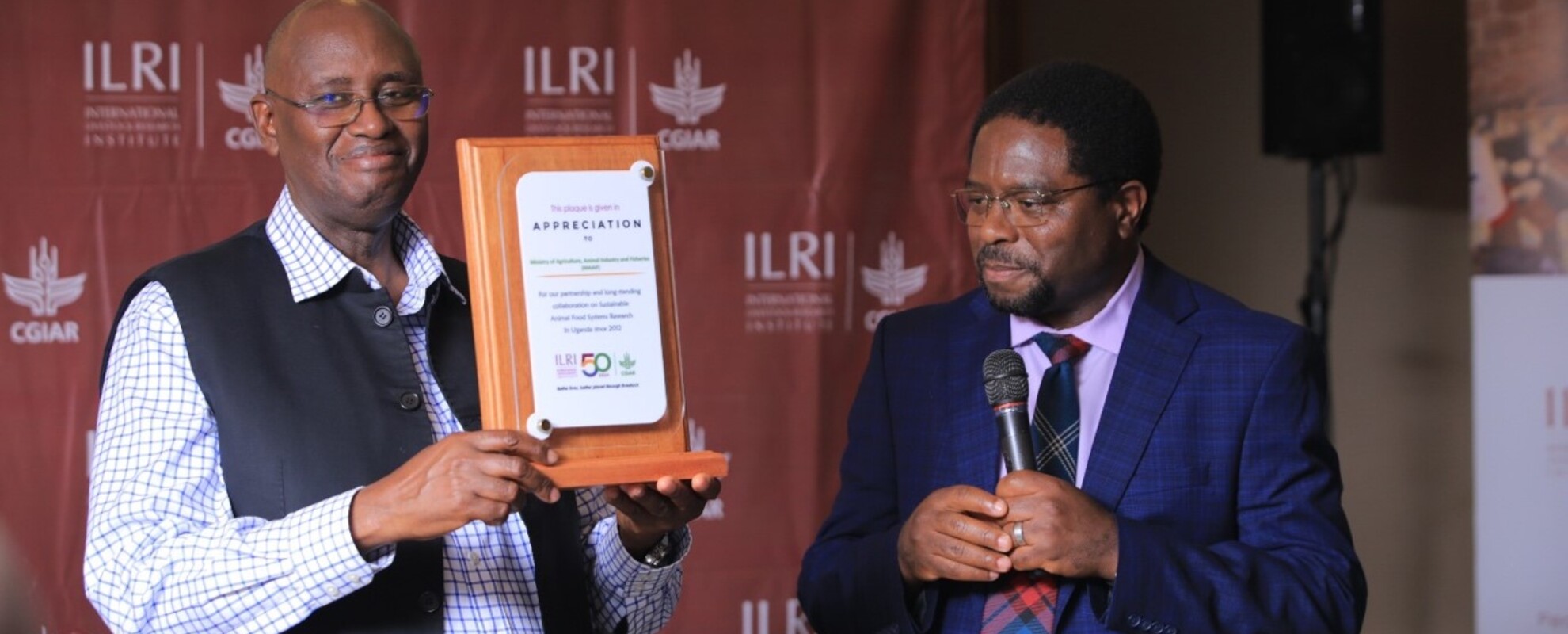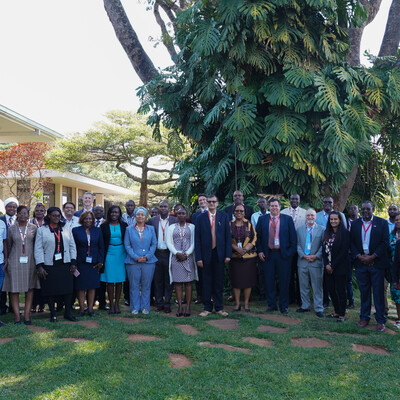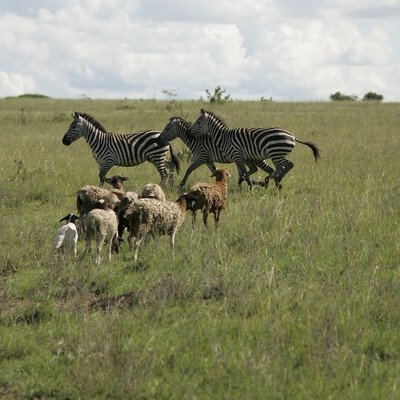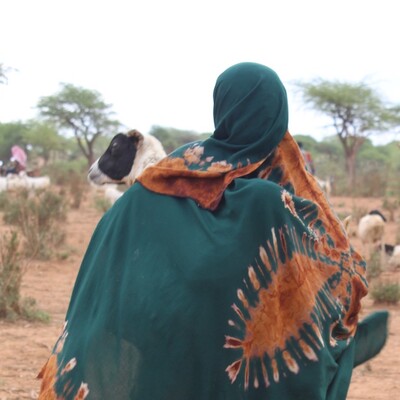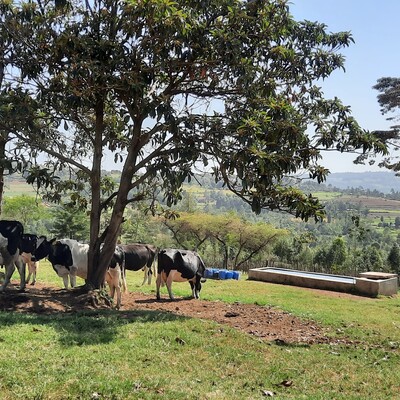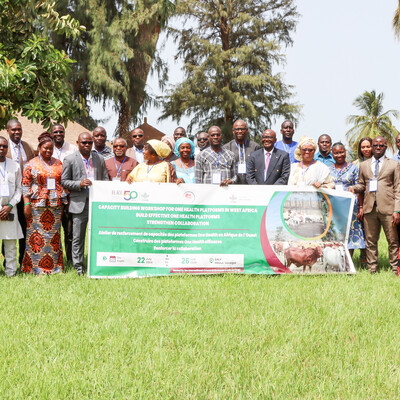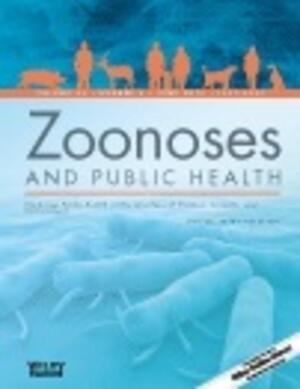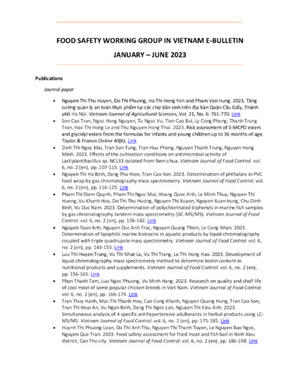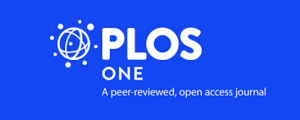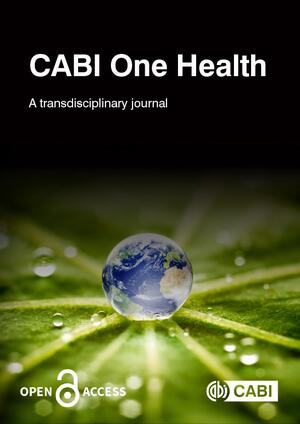
ILRI celebrates 12 years of supporting the transformation of Uganda’s livestock sector
In recent decades the work of International Livestock Research Institute (ILRI) and partners has contributed significantly to the development of the livestock sector in Uganda, particularly toward pig and dairy development in the country. During this period, Uganda’s piggery sector has registered a 122% growth, from 3.2 million pigs in 2008 to 7.1 million in 2021, and the number of pig keeping households has risen to 2.2 million (33% of all livestock keeping households) from 1.13 million in 2008, an increase of 96%.
In August 2024, Appolinaire Djikeng, director general of ILRI, visited project sites in Uganda, met with stakeholders and partners, and signed collaborative agreements as part of ILRI’s strategy to harness new partnerships and utilize innovative engagement and advocacy approaches. At a cocktail event to commemorate 50 years of ILRI, which was attended by ILRI partners from the public and private sectors, academia, civil society, development partners, Djikeng commended partners and stakeholders their partnership with ILRI which has led to the transformation of Uganda’s livestock sector.
‘Without your support, there would be no ILRI to celebrate,’ he said.
During the visit, the director general unveiled ILRI’s corporate strategy for 2024-2030, that focuses on delivering research that emphasizes the interlinkage between people, animals and the environment to benefit more than 300 million people globally, from farmers, producers, to consumers.
Speaking at the event, Honorable Bright Rwamirama, Uganda’s Minister of State for Animal Industry, called for ‘more investment in the sector so that the significant growth of the pork sector in the last 10 years can be leveraged to produce high-quality pork for local consumers and meet export standards.’
Uganda is now one of three top pork producers in Africa, after Nigeria and Malawi, and the pig sector is now a high priority for government policy and investment.
Delivering integrated intervention packages
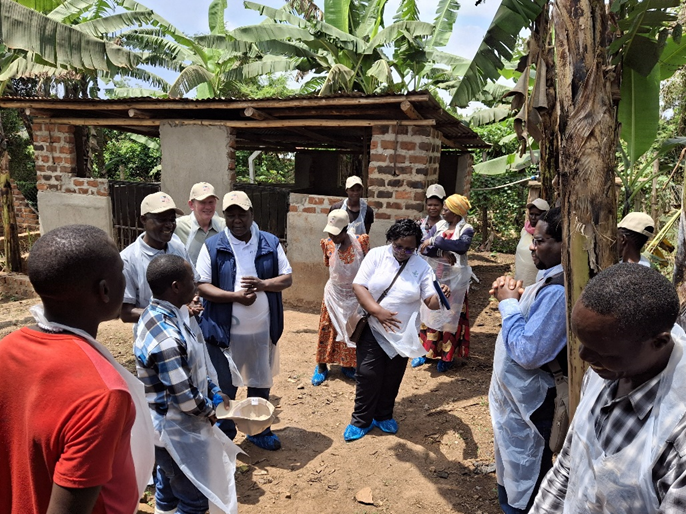
Since its inception in 2012, the ILRI Uganda office and partners have co-designed, tested, piloted and delivered integrated intervention packages to address the livestock challenges faced in Uganda including poor genetics, insufficient and poor-quality feed, and health and biosecurity challenges. Interventions initially focused on the pig value chain, but have evolved to include cattle, poultry and small ruminants.
With a current portfolio of projects valued at USD 5 million, ILRI’s work has contributed towards addressing Uganda’s livestock challenges through interventions in:
Feeding innovations, to overcome low feed availability and quality including the development of low-cost and locally available feed options for livestock; training, mentorship and certification programs for small-scale feed producers to improve feed quality and service provision. This work has also included testing forages and forage seed business models and setting up multilocational performance trials for testing potential varieties of forages/fodder.
Genetic and breeding innovations—to improve access to farmer-preferred breeds: This work entails capacitating animal health-care workers to provide artificial insemination services through technical training, entrepreneurship training and business model development.
Extension innovations—to address poor access to advisory services: Extension messaging for pig farmers and other value chain actors on integrated productivity-enhancing technologies and practices, as well as marketing options, delivered through behaviour change communication approaches; development of digital platforms for exchange of information and market linkages and transactions.
Marketing innovations: Business mentoring support to pig buyers (aggregators) and pig producers to formulate win-win business arrangements and enhance trust and value chain linkages.
Policy innovations: For a more conducive policy environment: Mechanisms and processes for sustaining effective engagement with policymakers for decision-making on sustainable pig, beef and dairy cattle sectors.
The future
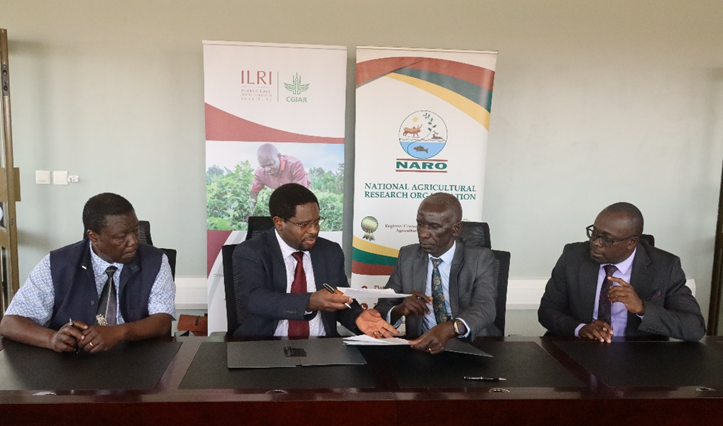
To consolidate the wins gained in transforming the livestock sector in Uganda, ILRI has signed strategic partnership agreements with the National Animal Genetic Resources Centre and Data Bank (NAGRC&DB) and the National Agricultural Research Organization (NARO) which are agencies under the Ministry of Agriculture, Animal Industry and Fisheries. These agreements will build on the collaboration that ILRI has had with the two institutions and establish long-term relationships to promote livestock development through complementary research, institutional development and capacity building to further the mission of the two institutions.
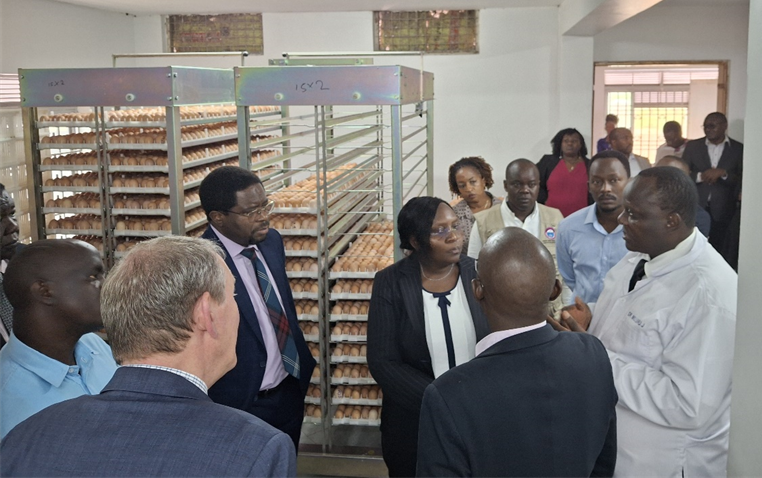
Yona Baguma, director general NARO said, ‘together with ILRI, we will develop a research hub to promote agricultural technologies and innovations to address challenges faced by livestock farmers in Uganda and beyond.’
Areas of collaboration under the new agreements will include One Health research; animal nutrition; vaccines and immunization, disease diagnostic tools; food/feed safety and zoonotic diseases. The institutions will also work together on capacity building and staff exchange programs to boost technical output as well as collaborative research proposal development to mobilize resources for joint research endeavours.
More information on the ILRI-NARO agreements
https://www.harvestmoney.co.ug/uganda-leading-pork-producer-in-africa/.
NARO starts pilot of Ugandan anti-tick vaccine





